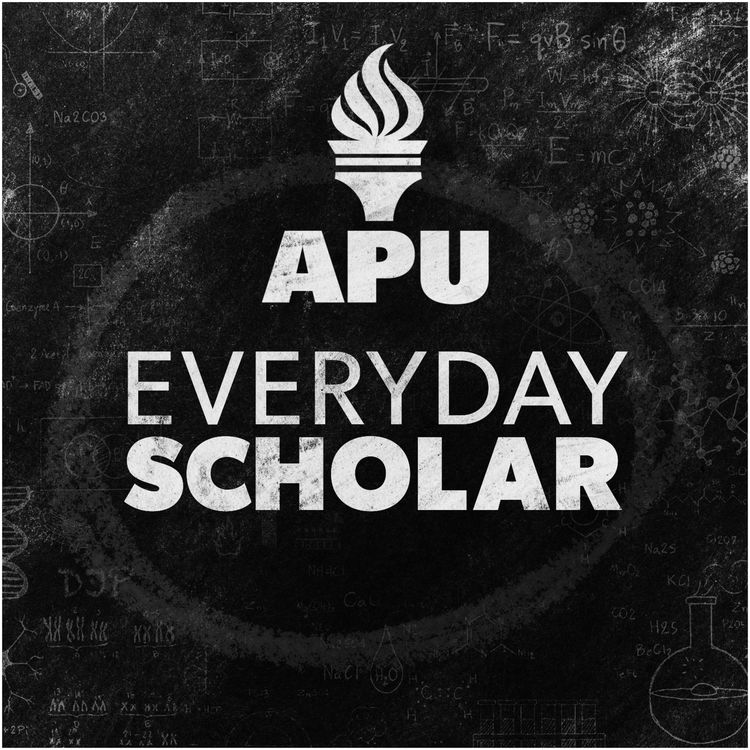Share

The Everyday Scholar
Teaching in Prisons: The Difficulties of Prisoner Reintegration
•
American Public University faculty member Tiffany Orcesi, Dr. Michael Pittaro from the School of Security and Global Studies and Dr. Bjorn Mercer discuss teaching in the prison. Tiffany Orcesi and Dr. Michael Pittaro discuss their experiences teaching in the prison system, the challenges of prisoner educational programs, and the difficulties of prisoner reintegration.
More episodes
View all episodes

121. Lotus in the Desert: The Untold Story of Buddhist Nuns | EP121
33:52||Ep. 121Dr. Bjorn Mercer chats with APU professor Dr. Chapla Verma about her forthcoming book “Lotus in the Desert-Mahapajapati: A Theravada Nunnery in California,” which explores the challenges and resilience of Theravada Buddhist nuns, particularly those at the Mahapajapati Monastery in California. Verma shares how she became interested in this topic and dives into the struggles these women face in a tradition where full ordination for nuns has often been restricted or outright denied, especially in places like Myanmar and Thailand. Through compelling personal stories, she highlights the perseverance of these nuns as they navigate strict monastic precepts, social barriers, and institutional resistance in their pursuit of equality within Buddhism. Their experiences shed light on the broader conversation around religious freedom, gender disparity, and the struggle for recognition in deeply rooted traditions.
120. From Likes to LinkedIn: Using Social Media to Unlock Professional Opportunities | EP120
36:34||Ep. 120What does it take to stand out in today’s digital landscape? In this engaging conversation, Linda Ashar speaks with Wes O'Donnell – military veteran, AMU alum, filmmaker, and director of the social media team at American Public University – about the power of social media in identifying career opportunities. Wes shares valuable strategies for students and professionals to build their professional network, leverage social media platforms, and showcase their skills through e-portfolios. From crafting compelling LinkedIn profiles to leveraging AI for content creation, Wes provides practical insights and real-world experiences to help listeners navigate the evolving online professional space with confidence.
119. Writing in an AI World: Ethics, Biases, and Beyond | EP119
33:43||Ep. 119Dr. Bjorn Mercer and Dr. Jennifer Fisch-Ferguson explore the evolving landscape of writing in the era of AI, addressing ethical concerns, student development, and the potential biases of generative language models. Dr. Fisch-Ferguson discusses the complexities of writing education and the importance of maintaining academic integrity and personal voice in an increasingly AI-assisted world. They examine how using AI as a supportive tool—rather than a crutch—can foster authentic writing skills and encourage curiosity. With reflections on lifelong learning and adapting to technology, this episode emphasizes the enduring value of critical thinking and creativity in writing.
118. Voices in the Field: Guarding the Game with James DeMeo | EP118
43:35||Ep. 118In this episode, APU’s Dr. Jim Reese sits down with James DeMeo, a security expert with decades of experience in law enforcement and event security. DeMeo shares his journey from working in law enforcement on Long Island to becoming a consultant and educator specializing in security for sports venues. He dives into the challenges of keeping large crowds safe at stadiums and concerts, emphasizing the “duty of care” that security teams owe to attendees. DeMeo highlights how vital it is for venue managers to balance creating a safe environment with making the fan experience enjoyable.He also talks about the latest security tools, from biometrics to surveillance technology, that help identify potential threats before they escalate. For students, especially those with military backgrounds, DeMeo offers advice: start networking, keep learning, and get hands-on experience. He believes new professionals in sports security can make a big impact by understanding the importance of collaboration, proactive planning, and staying on top of security trends.
117. How Generative AI Enhances Lifelong Learning and Growth | EP117
42:07||Ep. 117In this insightful discussion, APU’s Dr. Bjorn Mercer and Dr. Mitch Colver explore the transformative role of generative AI in enhancing lifelong learning and critical thinking. Dr. Colver highlights how tools like ChatGPT serve as valuable aids in distributed cognition, helping individuals process information more efficiently and navigate complex topics in both personal and professional contexts. The conversation touches on practical applications of generative AI, from resolving family debates to aiding in understanding complex texts. Dr. Colver emphasizes the importance of using AI as a resource to augment human ingenuity rather than replace it, underscoring the value of maintaining critical inquiry and intellectual engagement. Together, they advocate for a balanced approach, where AI complements human expertise, fostering deeper learning and creative problem-solving.
116. Combating Human Trafficking: The Blink3 Initiative | EP116
26:12||Ep. 116More than 25 million people around the world are estimated to be victims of human trafficking. APU’s Dr. Linda Ashar interviews professor Dr. Steve Wynne, an international legal consultant and associate professor, about the non-profit he founded to help combat human trafficking. Learn about Blink3, a nonprofit initiative created to help victims signal for help using a nonverbal SOS by blinking three times. Blink3 also offers free educational courses to raise awareness and prevent human trafficking. The conversation highlights the importance of public awareness and collective action in addressing this global issue.
115. Global Impact of Soccer: Insights from Real Salt Lake | EP115
37:33||Ep. 115Jon Spencer, Director of Scouting for Real Salt Lake and University alumnus, talks with Dr. Jim Reese and President Nuno Fernandes about his journey to becoming a key figure in Major League Soccer. He discusses the importance of hard work, patience, and determination in building a successful career in sports, highlighting how soccer has evolved in the U.S. over the past decade. Listen to hear valuable insight and advice for aspiring sports professionals.
114. Steps to Developing Strong Diversity, Equity, and Inclusion Policies | EP114
32:12||Ep. 114Recent national attention on systematic social injustices has caused many corporate leaders to take a hard look at their company’s approach to diversity, equity and inclusion. In this episode, APU business professor Cynthia Gentile talks to Uva Christina Coles, the founder and CEO of Inclusiva, a consulting firm specializing in workforce inclusion. Learn about the need for companies to create an open and safe space for leaders and employees to talk about diversity, steps and tools needed to build comprehensive DEI policies and procedures, and how the pandemic has helped further these conversations by humanizing employees and drawing closer the line between work and personal lives.
113. Predicting the Future: Will AI and Tech Innovation Revolutionize Higher Ed? | EP113
30:45||Ep. 113Education will change more in the next 15 years than it has for the last millennium, predicts Nuno Fernandes, President of American Public University System. Hear how technology and innovation – specifically artificial intelligence – could lead to advancements in education not seen since the advent of the printing press. Together with Dr. Bjorn Mercer, Mr. Fernandes contemplates how AI might transform students’ experiences in the classroom. From unlocking new opportunities for highly customized learning and instruction to potential tuition savings, AI could potentially redefine higher education. As artificial intelligence becomes increasingly prevalent, it is now more important than ever for students – and universities – to embrace change, plus prepare for what’s next.